Singapore and the US: Speaking hard truths as a good friend
Singapore Prime Minister Lee Hsien Loong's recent visit to the US highlights a unique dynamic in the bilateral relationship: Singapore's ability to speak frankly and candidly to its superpower partner. During the visit, Singapore also reiterated that it does not take sides but stands up for the principles of territorial integrity and sovereignty.
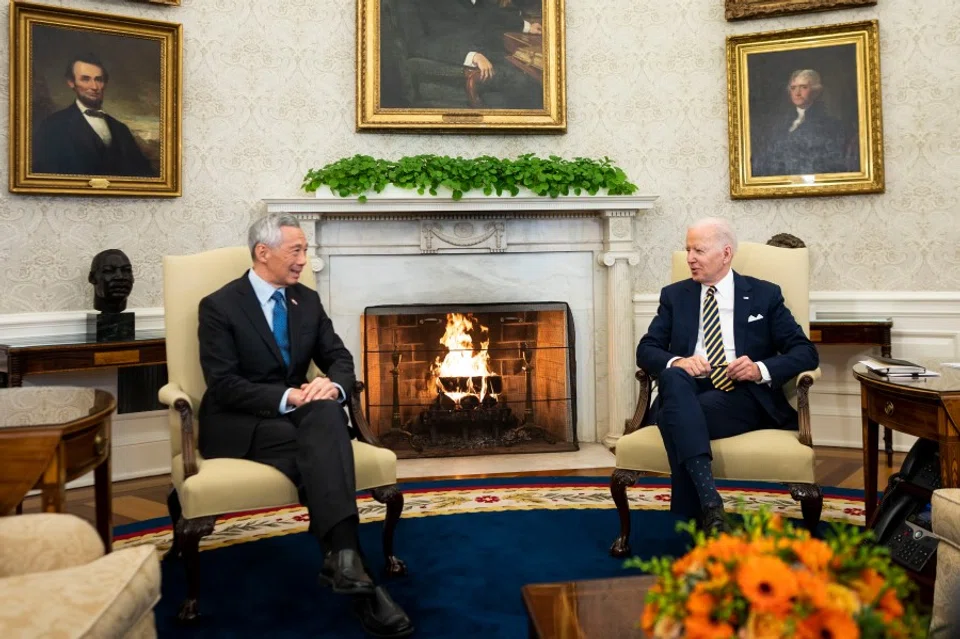
When Australia-China relations were in a better state in 2008, then Australian premier Kevin Rudd raised quite a few eyebrows when he said that Canberra's relationship with China should be that of a zhengyou (诤友) - a friend who speaks frankly and critically. Speaking at Peking University, Rudd told the Chinese that solid friendships are built on the "ability to engage in a direct, frank and ongoing dialogue" about the two countries' "fundamental interests and future vision".
When Prime Minister Lee Hsien Loong visited Washington last week, his willingness to speak truth to Washingtonian power embodies the same spirit as Rudd's notion of a zhengyou.
Singapore has earned the right to speak frankly as a friend over the course of its 55-year long bilateral relationship with the US, which is on a solid footing. PM Lee's six-day itinerary featured a significant meeting with US President Joseph Biden, the release of a joint leaders' statement criticising Russia's invasion of Ukraine and calls on senior Cabinet members, including Defence Secretary Lloyd Austin and Treasury Secretary Janet Yellen.
Within Southeast Asia, Singapore's partnership with the US is unique, given that it is not Washington's formal ally. At his meeting with US House Speaker Nancy Pelosi, Mr Lee noted that Singapore is the US's only major security cooperation partner under the National Defense Authorization Act of the US Congress. In March 2021, the Biden Administration's Interim National Security Strategic Guidance paper highlighted Singapore and Vietnam (and other unnamed ASEAN states) as partners to advance Washington's goals in the Indo-Pacific region.
As Mr Lee said, Singapore is not choosing sides but standing up for the principles of territorial integrity and sovereignty.
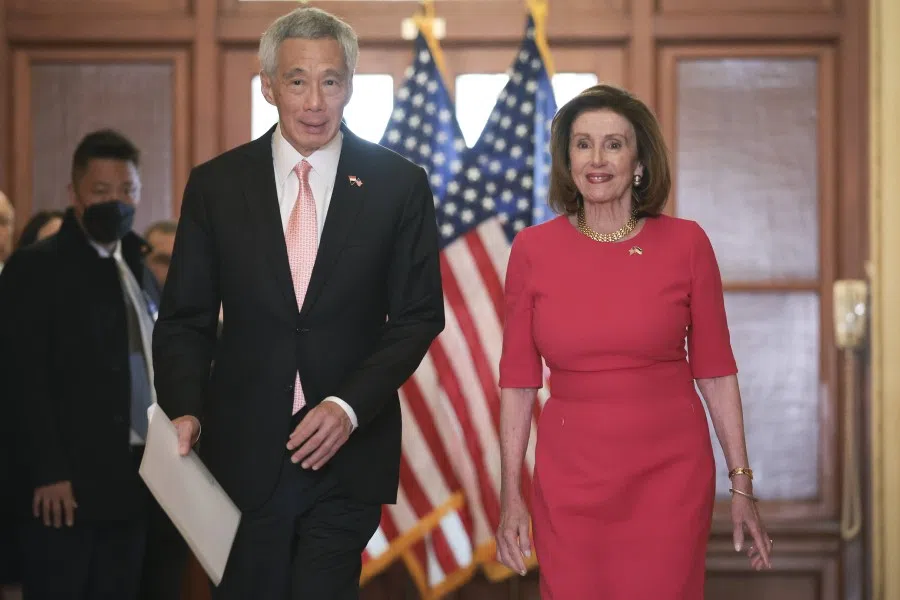
Some American think-tankers and officials have told me that they are encouraged that Singapore has condemned Russia's invasion of Ukraine and effected sanctions against Moscow. In their view, Singapore has "taken an American position" on the issue.
It should be noted, however, that Singapore is not choosing an American position per se. As Mr Lee said, Singapore is not choosing sides but standing up for the principles of territorial integrity and sovereignty. He highlighted that Singapore had voted against Washington at the United Nations after the US invaded Grenada in 1983: "[It] does not mean we are the enemy of the US, but we cannot approve of what they did; we cannot endorse or condone such violation of the sovereignty of another country."
Speaking at the Council on Foreign Relations during his visit, Mr Lee appeared flustered when he was asked by a Time magazine journalist as to whether the Biden administration had accepted Singapore's offer of becoming a "Beijing whisperer".
Mr Lee replied that he was "not a Beijing whisperer", given that Singapore is a multi-racial, multi-religious country with "independent national interests and priorities". If the journalist was echoing the general view of Americans that Singapore was pro-Washington over Beijing, Mr Lee sought to disabuse them of any illusions that the island would help change China's behaviour according to Washington's preferences. It could be said that the message was meant for Beijing as well.
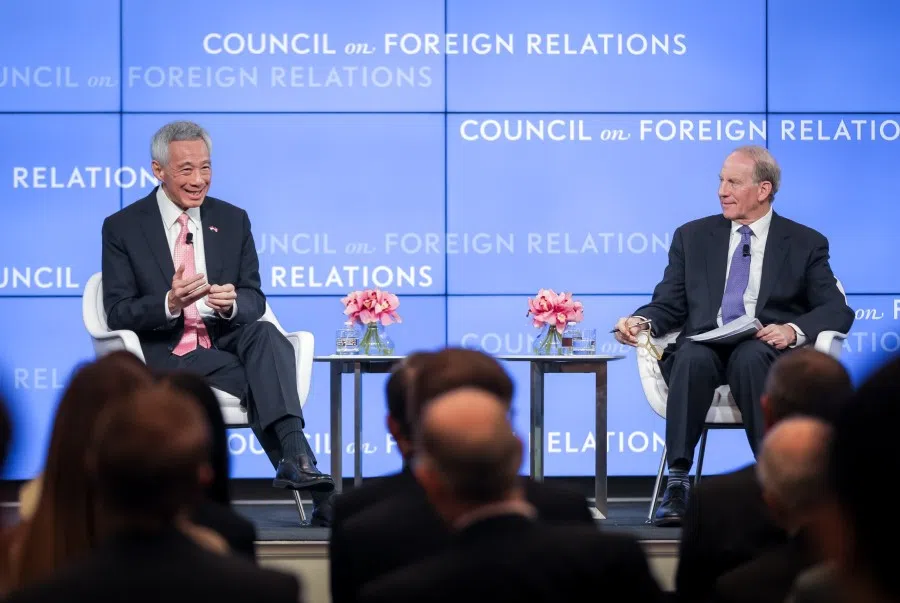
Mr Lee also did not hold back in seeking to get Sino-American relations back on track. Citing George Schultz, the late US secretary of state, Mr Lee said that "trust is the coin of the realm". This is lacking between the two superpowers at the moment and a main reason why the US is deeply suspicious of Chinese motives in the areas of intellectual property theft and cyber security.
US sanctions on China will not go "very far" in the area of intellectual property rights, Mr Lee said. What is important is that both countries build a "basis of trust" to resolve issues.
He [PM Lee Hsien Loong] reminded his audience that the US should treat China as a more developed country and "give it some space to influence the global system".
This theme of strategic trust - or more specifically, the lack of it - was a theme of Mr Lee's keynote at the 2019 Shangri-La Dialogue in Singapore. Many countries in Asia, including US allies such as Japan and South Korea, hope that the US and China can "resolve their differences", Mr Lee said.
While in Washington, Mr Lee also sought to address American concerns that decades of seeking to integrate China into the global economy have not succeeded. He reminded his audience that the US should treat China as a more developed country and "give it some space to influence the global system".
While this approach echoes an older (and apparently less successful) US strategy to make China a "responsible stakeholder", Mr Lee's suggestions make sense. By giving China more space (and face), Washington can build a foundation for greater Sino-US cooperation. As Professor Thomas Schelling's theories on conflict behaviour remind us, even antagonists can unwittingly sync their strategies if it is in both parties' interests to cooperate. In today's geopolitics, Washington's and Beijing's interests are not entirely diametrically opposed. There is room for coordination.
It was on Washington's much-vaunted Indo-Pacific strategy that Mr Lee tried to cajole the Americans, particularly on its economic aspects. In 2017, President Trump withdrew the US from the 12-nation Trans-Pacific Partnership (TPP), which later became the Comprehensive and Progressive Trans-Pacific Partnership (CPTPP). It is ironic that the TPP was initially seen as a platform for Washington to lay down the rules of trade and prosperity in the region (and indirectly, a way of excluding China), but now, China has requested to join the CPTPP.
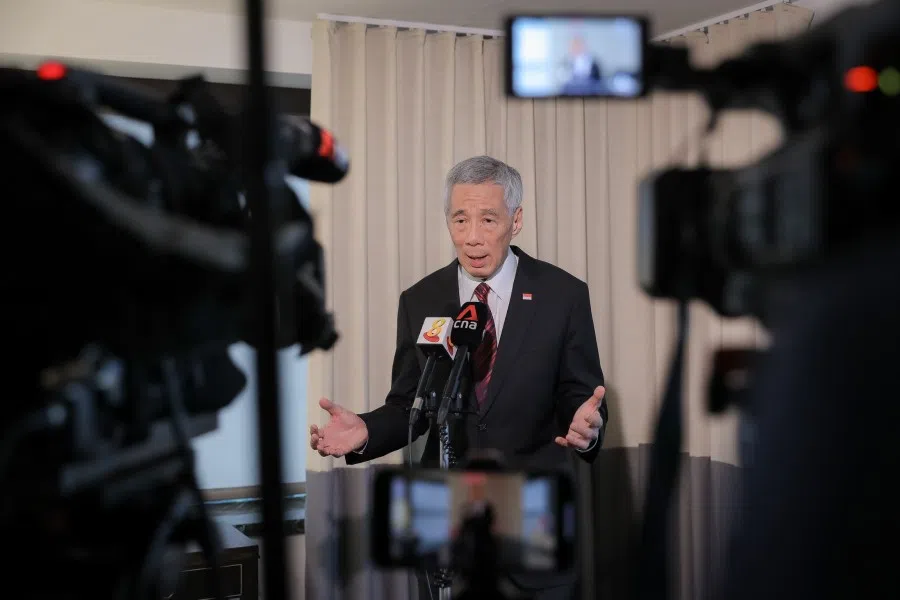
Short of full market access, Mr Lee said the US's Indo-Pacific Economic Framework should at the least imagine some cooperation in areas such as digital economy or sustainability, and take some "baby steps" towards market access and trade liberalisation. This will demonstrate US seriousness in its engagement of the region.
Singapore has practised such frankness towards the Americans before. In 2011, Lee Kuan Yew noted the reluctance of the US Congress to approve of any new free trade agreements (FTAs), and warned that this failure to ink new FTAs would mean that Japan, Taiwan, South Korea and other ASEAN countries will be more integrated into China's economy. A decade on, China has indeed made impressive strides in integrating regional economies into its market, particularly with the Regional Comprehensive Economic Partnership and the Belt and Road Initiative.
Singapore's desire to see greater stability in Sino-US relations has remained consistent, and PM Lee reiterated the need for Washington to stay engaged in Asia. But, as James Crabtree notes, Washington appears to be running two different Asia policies at once: one for China and another for non-aligned states, most of which are in Southeast Asia. On China, Washington has taken a middle path between maintaining US primacy and "effective competition with guardrails". On the latter, US moves to court ASEAN could be undermined by Washington's attempts to ramp up pressure on Beijing, as most ASEAN states would be jittery about choosing to side with either great power.
This article was first published by ISEAS - Yusof Ishak Institute as a Fulcrum commentary.
Related: Singapore's ambassador to China Lui Tuck Yew: Singapore must stay relevant to China | Singapore's prominent role in China's trade strategy | Former Chinese Vice-Minister He Yafei: Singapore and ASEAN have important roles to play in a multipolar world | Chan Chun Sing: Singapore amid great power rivalry | Can small states continue to avoid choosing between China and the US? | Singapore Prime Minister Lee Hsien Loong: The world will not split into two, but neither can it return to the past | China-US competition: Why small countries will not choose sides
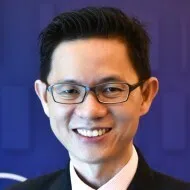

![[Big read] When the Arctic opens, what happens to Singapore?](https://cassette.sphdigital.com.sg/image/thinkchina/da65edebca34645c711c55e83e9877109b3c53847ebb1305573974651df1d13a)


![[Video] George Yeo: America’s deep pain — and why China won’t colonise](https://cassette.sphdigital.com.sg/image/thinkchina/15083e45d96c12390bdea6af2daf19fd9fcd875aa44a0f92796f34e3dad561cc)